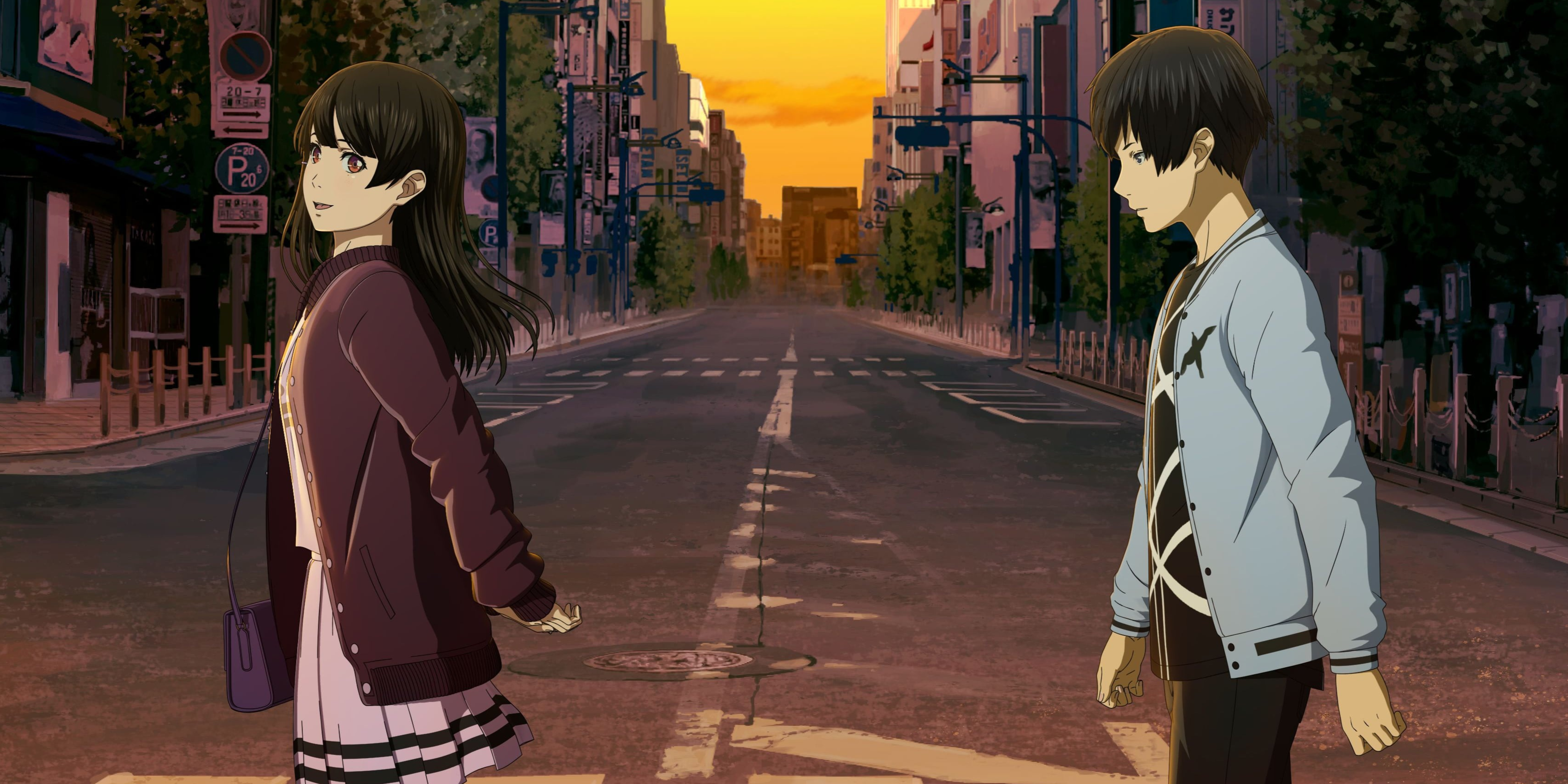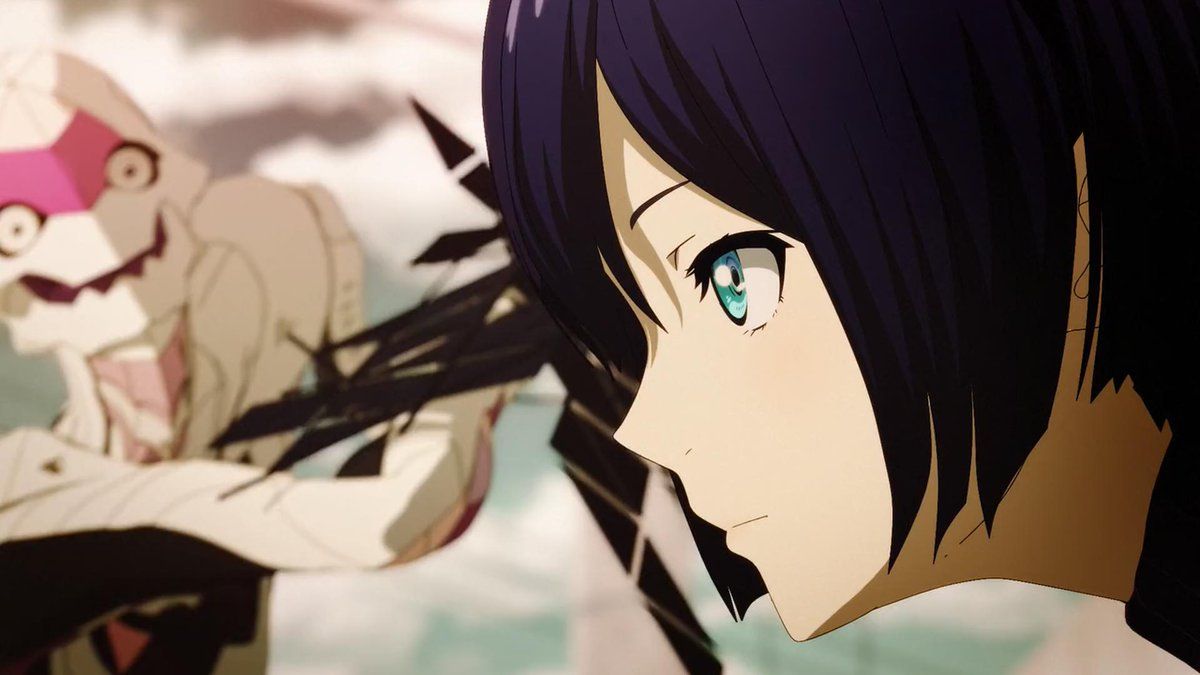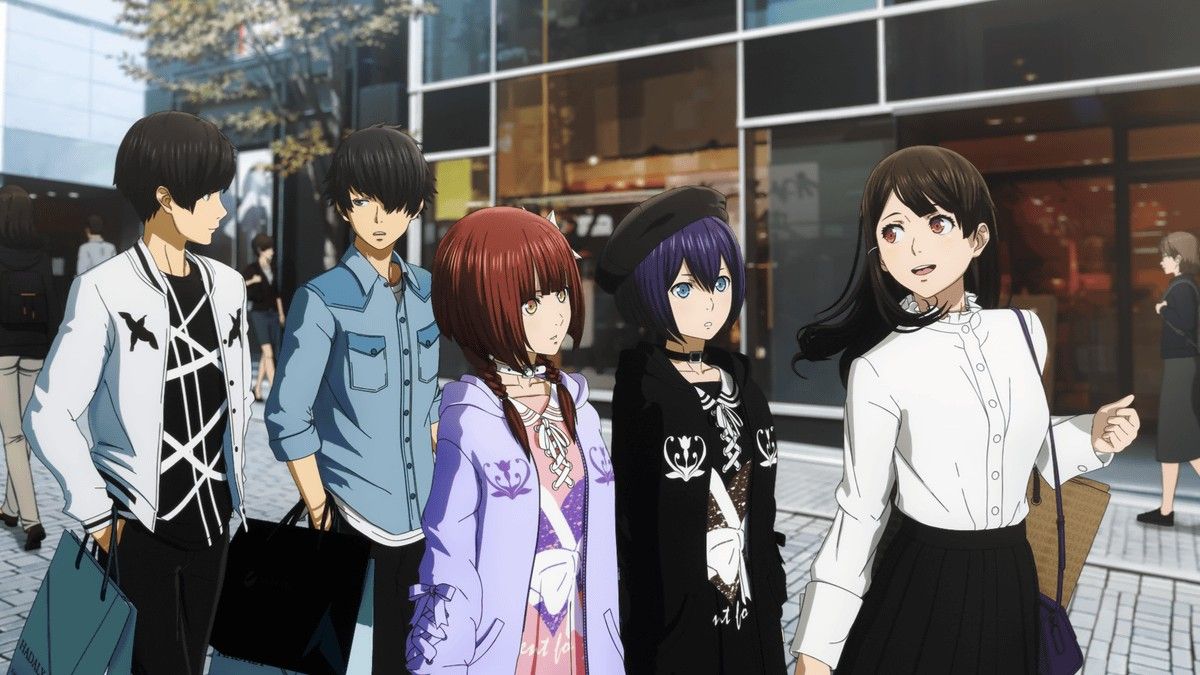Based on the web series of the same name, The Relative Worlds, also known as Even If the World Will End Tomorrow, blends sci-fi action and slice-of-life romance with mixed results. The film opens with a small boy, Shin Hazama, losing his mother in strange circumstances: One moment, he's holding her hand as they walk together, laughing, and the next moment, she's lying motionless on the floor. Skipping ahead to Shin's teen years, the film reveals his mother's sudden death is part of a global phenomenon of people dropping dead without warning or reason.
Shin's father, a scientist, has become married to his work in the intervening years, letting his relationship with his son suffer. Shin is distant and has few friends, save for a girl he's known since childhood -- Kotori, who clearly wants their friendship to blossom into something more. When Shin's father also succumbs to the weird phenomenon, Kotori becomes even more concerned about Shin's despondency, offering that he come and live with her and her father.
Just as Shin and Kotori's relationship starts developing the way Kotori wants, their (relatively) normal lives are interrupted by the arrival of a set of robotic twin girls and an alternate version of Shin -- a darker version, called Jin, as his sweeping fringe of "edginess" tells us. Jin's mission is to kill the Kotori in this world, making things a little awkward between the potential partners, while the twins are there to make sure that doesn't happen. This is also where the problems with the film begin.
At the heart of The Relative Worlds is a decent sci-fi set-up, even if its a variation on those we've seen before: killer robots from another world; dystopian futures; parallel universes and visiting doppelgangers. The little we see of this parallel world -- the relative world -- is also interestingly designed: feudal Japan with a futuristic twist. The action sequences, especially one of the earlier ones between alternate Jin's cybernetic assassin, Kotori and one of the twins, Miko, are well-executed, too. However, the film plays its hand far too early. Rather than allow the story's questions to gradually answer themselves, writer/director Yuhei Sakuragi (The Case of Hana & Alice, Ingress) drops a bunch of expository information on us surprisingly early into the film, allowing most of the intrigue to quickly drain away.
With all of the mystery gone, the narrative becomes much more straightforward -- relaxed even, to the point that a good five or so minutes ends up being devolving from kill-or-be-killed, high stakes action, to a group date montage fit for a Disney Channel movie. At the Scotland Loves Anime Glasgow screening of the film in October, Sakuragi, tellingly, told the audience during a Q&A that romance and slice-of-life are his preferred genres, which goes some way to explain why he might have been more eager to burn through the sci-fi elements in order to get to the Terminators-at-the-mall stuff as quickly as possible. Comedic downtime is, of course, not something that's out of place in more action-oriented films -- just look at how much success the Marvel Cinematic Universe has had with this balancing act over the last decade. However, in The Relative Worlds, the shift is as jarring as running into another you would be.
The film is rendered in 3D CG, of which Sakuragi is known to be a specialist in. (So much so, in fact, that he was the person that the previously CG-adverse Hayao Miyazaki chose to collaborate with for his first foray into the medium.) CG is still a touchy subject for a lot of anime fans, particularly the blend of 2D and 3D that Sakuragi employs here, which, for those who saw the CGI Berserk series, might bring back unpleasant memories. The Relative Worlds is certainly far superior to the laughably stilted sequences of the latter but probably won't create any new converts, either, particularly when this year also saw the release of Studio TRIGGER's dazzlingly dynamic 2D film, Promare. The fact that the montages are just a series of stills is a little baffling, too.
The central cast's fairly limp characterizations don't help to alleviate any of the lifelessness that this kind of animation can often feel like, either; Shin, unfortunately, is particularly un-engaging as a hero for this type of story, while Kotori has little personality outside of just playing the love interest role. Ironically, the most human of the group is Miko, the first of the robot twins we meet, who has something of the deadpan humor of Dorothy, the android maid from The Big O. She's practical and impressively skilled in the field of battle, while her relationship with her ill-fated sister is far more absorbing than Shin and Kotori's.
The Relative Worlds might have been better served, ultimately, in the hands of a writer/director who had a greater interest in its sci-fi conceit, because -- though competently animated -- the script completely squanders its intriguing premise all too quickly, leaving little else but strange, interdimensional meet-cutes and wasted potential in its wake.



